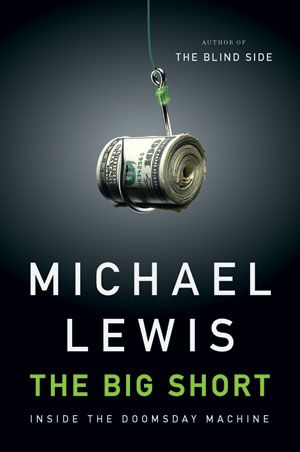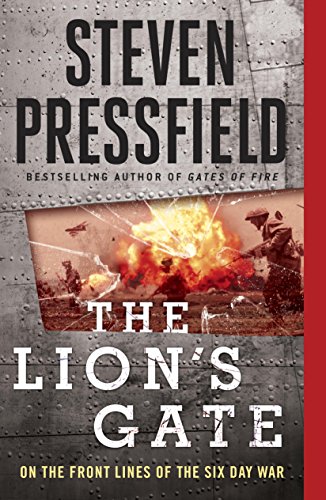Author: Herman Hesse
Rating: 10/10
Last Read: October 2016
Quick Summary:
I started this book three times, but always failed to get past the same spot every time (Magic theater – entrance not for everybody). However, finally I managed to make it past that section to the treatise on the Steppenwolf, and holy shit. What a book.
In short summary, the book is simply about this:
There was once a man, Harry, called the Steppenwolf. He went on two legs, wore clothes and was a human being, but nevertheless he was in reality a wolf of the Steppes. He had learned a good deal of all that people of a good intelligence can, and was a fairly clever fellow. What he had not learned, however, was this: to find contentment in himself and his own life. The cause of this apparently was that at the bottom of his heart he knew all the time (or thought he knew) that he was in reality not a man, but a wolf of the Steppes.
This man is trapped between two ideals for what life entails. But he learns that perhaps there are more aspects than the ones he understands.
Harry consists of a hundred or a thousand selves, not of two. His life oscillates, as everyone’s does, not merely between two poles, such as the body and the spirit, the saint and the sinner, but between thousand and thousands.
I hate to think that this is the book that makes me say, “Here I am! Here are the things I learned! Steppenwolf is about me!” I even only just learned to love dancing! What does that say? That I am just one of the many who belongs in the counterculture movement? Perhaps my friends would not be so surprised, but I am!
For what I always hated and detested and cursed above all things was this contentment, this healthiness and comfort, this carefully preserved optimism of the middle classes, this fat and prosperous brood of mediocrity.
No prospect was more hateful and distasteful to him than that he should have to go to an office and conform to daily and yearly routine and obey others.
My Highlights
A wild longing for strong emotions and sensations seethes in me, a rage against this toneless, flat, normal and sterile life. –loc 37
For what I always hated and detested and cursed above all things was this contentment, this healthiness and comfort, this carefully preserved optimism of the middle classes, this fat and prosperous brood of mediocrity. –loc 40
At every other step were placards and posters with their various attractions, Ladies’ Orchestra, Variété, Cinema, Ball. But none of these was for me. They were for “everybody,” for those normal persons whom I saw crowding every entrance. –loc 130
It is remarkable, all that men can swallow. For a good ten minutes I read a newspaper. I allowed the spirit of an irresponsible man who chews and munches another’s words in his mouth, and gives them out again undigested, to enter into me through my eyes. I absorbed a whole column of it. And then I devoured a large piece cut from the liver of a slaughtered calf. Odd indeed! –loc 146
Who read by night above the Rhine the cloudscript of the drifting mists? It was the Steppenwolf. And who over the ruins of his life pursued its fleeting, fluttering significance, while he suffered its seeming meaninglessness and lived its seeming madness, and who hoped in secret at the last turn of the labyrinth of Chaos for revelation and God’s presence? –loc 173
How foolish to wear oneself out in vain longing for warmth! Solitude is independence. It had been my wish and with the years I had attained it. It was cold. Oh, cold enough! But it was also still, wonderfully still and vast like the cold stillness of space in which the stars revolve. –loc 192
There was once a man, Harry, called the Steppenwolf. He went on two legs, wore clothes and was a human being, but nevertheless he was in reality a wolf of the Steppes. He had learned a good deal of all that people of a good intelligence can, and was a fairly clever fellow. What he had not learned, however, was this: to find contentment in himself and his own life. The cause of this apparently was that at the bottom of his heart he knew all the time (or thought he knew) that he was in reality not a man, but a wolf of the Steppes. –loc 257
But it was exactly the same when Harry felt and behaved as a wolf and showed others his teeth and felt hatred and enmity against all human beings and their lying and degenerate manners and customs. For then the human part of him lay in ambush and watched the wolf, called him brute and beast, and spoiled and embittered for him all pleasure in his simple and healthy and wild wolf’s being. –loc 283
Thus it was then with the Steppenwolf, and one may well imagine that Harry did not have an exactly pleasant and happy life of it. This does not mean, however, that he was unhappy in any extraordinary degree (although it may have seemed so to himself all the same, inasmuch as every man takes the sufferings that fall to his share as the greatest). –loc 286
even the unhappiest life has its sunny moments and its little flowers of happiness between sand and stone. –loc 289
There are a good many people of the same kind as Harry. Many artists are of his kind. These persons all have two souls, two beings within them. There is God and the devil in them; the mother’s blood and the father’s; the capacity for happiness and the capacity for suffering; and in just such a state of enmity and entanglement towards and within each other as were the wolf and man in Harry. And these men, for whom life has no repose, live at times in their rare moments of happiness with such strength and indescribable beauty, the spray of their moment’s happiness is flung so high and dazzlingly over the wide sea of suffering, that the light of it, spreading its radiance, touches others too with its enchantment. –loc 310
All these men, whatever their deeds and works may be, have really no life; that is to say, their lives are not their own and have no form. They are not heroes, artists or thinkers in the same way that other men are judges, doctors, shoemakers, or schoolmasters. Their life consists of a perpetual tide, unhappy and torn with pain, terrible and meaningless, unless one is ready to see its meaning in just those rare experiences, acts, thoughts and works that shine out above the chaos of such a life. To such men the desperate and horrible thought has come that perhaps the whole of human life is but a bad joke, a violent and ill-fated abortion of the primal mother, a savage and dismal catastrophe of nature. To them, too, however, the other thought has come that man is perhaps not merely a half-rational animal but a child of the gods and destined to immortality. –loc 317
No prospect was more hateful and distasteful to him than that he should have to go to an office and conform to daily and yearly routine and obey others. –loc 332
In the beginning his dream and his happiness, in the end it was his bitter fate. The man of power is ruined by power, the man of money by money, the submissive man by subservience, the pleasure seeker by pleasure. He achieved his aim. He was ever more independent. He took orders from no man and ordered his ways to suit no man. –loc 337
“I am curious to see all the same just how much a man can endure. If the limit of what is bearable is reached, I have only to open the door to escape.” There are a great many suicides to whom this thought imparts an uncommon strength. –loc 378
Now what we call “bourgeois,” when regarded as an element always to be found in human life, is nothing else than the search for a balance. It is the striving after a mean between the countless extremes and opposites that arise in human conduct. –loc 419
Now it is between the two, in the middle of the road, that the bourgeois seeks to walk. He will never surrender himself either to lust or to asceticism. He will never be a martyr or agree to his own destruction. On the contrary, his ideal is not to give up but to maintain his own identity. –loc 425
In short, his aim is to make a home for himself between two extremes in a temperate zone without violent storms and tempests; and in this he succeeds though it be at the cost of that intensity of life and feeling which an extreme life affords. –loc 428
A man cannot live intensely except at the cost of the self. –loc 430
The bourgeois is consequently by nature a creature of weak impulses, anxious, fearful of giving himself away and easy to rule. Therefore, he has substituted majority for power, law for force, and the polling booth for responsibility. –loc 433
Neither the great numbers of the herd, nor virtue, nor common sense, nor organization could avail to save it from destruction. No medicine in the world can keep a pulse beating that from the outset was so weak. Nevertheless the bourgeoisie prospers. Why? –loc 438
There is always a large number of strong and wild natures who share the life of the fold. –loc 443
And so all through the mass of the real bourgeoisie are interposed numerous layers of humanity, many thousands of lives and minds, every one of whom, it is true, would have outgrown it and have obeyed the call to unconditioned life, were they not fastened to it by sentiments of their childhood and infected for the most part with its less intense life; and so they are kept lingering, obedient and bound by obligation and service. –loc 446
Most intellectuals and most artists belong to the same type. Only the strongest of them force their way through the atmosphere of the bourgeois earth and attain to the cosmic. The others all resign themselves or make compromises. Despising the bourgeoisie, and yet belonging to it, they add to its strength and glory; for in the last resort they have to share their beliefs in order to live. –loc 454
Humor alone, that magnificent discovery of those who are cut short in their calling to highest endeavor, those who falling short of tragedy are yet as rich in gifts as in affliction, humor alone (perhaps the most inborn and brilliant achievement of the spirit) attains to the impossible and brings every aspect of human existence within the rays of its prism. To live in the world as though it were not the world, to respect the law and yet to stand above it, to have possessions as though “one possessed nothing,” to renounce as though it were no renunciation, all these favorite and often formulated propositions of an exalted worldly wisdom, it is in the power of humor alone to make efficacious. –loc 467
So too, to come to the point, is the Steppenwolf a fiction. When Harry feels himself to be a were-wolf, and chooses to consist of two hostile and opposed beings, he is merely availing himself of a mythological simplification. –loc 500
Harry consists of a hundred or a thousand selves, not of two. His life oscillates, as everyone’s does, not merely between two poles, such as the body and the spirit, the saint and the sinner, but between thousand and thousands. –loc 515
Man is not capable of thought in any high degree, and even the most spiritual and highly cultivated of men habitually sees the world and himself through the lenses of delusive formulas and artless simplifications–and most of all himself. –loc 519
For it appears to be an inborn and imperative need of all men to regard the self as a unit. However often and however grievously this illusion is shattered, it always mends again. –loc 520
A man, therefore, who gets so far as making the supposed unity of the self two-fold is already almost a genius, in any case a most exceptional and interesting person. –loc 528
In reality, however, every ego, so far from being a unity is in the highest degree a manifold world, a constellated heaven, a chaos of forms, of states and stages, of inheritances and potentialities. It appears to be a necessity as imperative as eating and breathing for everyone to be forced to regard this chaos as a unity and to speak of his ego as though it were a one-fold and clearly detached and fixed phenomenon. Even the best of us shares the delusion. –loc 530
But things are not so simple in life as in our thoughts, nor so rough and ready as in our poor idiotic language –loc 561
That man is not yet a finished creation but rather a challenge of the spirit; a distant possibility dreaded as much as it is desired; that the way towards it has only been covered for a very short distance and with terrible agonies and ecstasies even by those few for whom it is the scaffold today and the monument tomorrow–all –loc 576
Even the wolf has two, and more than two, souls in his wolf’s breast, and he who desires to be a wolf falls into the same forgetfulness as the man who sings: “If I could be a child once more!” He who sentimentally sings of blessed childhood is thinking of the return to nature and innocence and the origin of things, and has quite forgotten that these blessed children are beset with conflict and complexities and capable of all suffering. –loc 599
Instead of narrowing your world and simplifying your soul, you will have to absorb more and more of the world and at last take all of it up in your painfully expanded soul, if you are ever to find peace. –loc 608
We are not dealing here with man as he is known to economics and statistics, as he is seen thronging the streets by the million, and of whom no more account can be made than of the sand of the sea or the spray of its waves. We are not concerned with the few millions less or more. They are a stock-in-trade, nothing else. No, we are speaking of man in the highest sense, of the end of the long road to true manhood, of kingly men, of the immortals. Genius is not so rare as we sometimes think; nor, certainly, so frequent as may appear from history books or, indeed, from the newspapers. –loc 614
A man who can understand Buddha and has an intuition of the heaven and hell of humanity ought not to live in a world ruled by “common sense” and democracy and bourgeois standards. –loc 621
It is true that every time my life was shattered in this way I had in the end gained something, some increase in liberty and in spiritual growth and depth, but with it went an increased loneliness, an increasing chill of severance and estrangement. –loc 693
so it is with the majority of men day by day and hour by hour in their daily lives and affairs. Without really wanting to at all, they pay calls and carry on conversations, sit out their hours at desks and on office chairs; and it is all compulsory, mechanical and against the grain, and it could all be done or left undone just as well by machines; and indeed it is this never-ceasing machinery that prevents their being, like me, the critics of their own lives and recognizing the stupidity and shallowness, the hopeless tragedy and waste of the lives they lead, and the awful ambiguity grinning over it all. –loc 837
Obeying is like eating and drinking. There’s nothing like it if you’ve been without it too long. Isn’t it so, you’re glad to do as I tell you?” –loc 985
How can you say that you’ve taken any trouble to live when you won’t even dance? –loc 1006
“Fine views of life, you have. You have always done the difficult and complicated things and the simple ones you haven’t even learned. No time, of course. More amusing things to do. Well, thank God, I’m not your mother. But to do as you do and then say you’ve tested life to the bottom and found nothing in it is going a bit too far.” –loc 1024
Seriousness, young man, is an accident of time. It consists, I don’t mind telling you in confidence, in putting too high a value on time. I, too, once put too high a value on time. For that reason I wished to be a hundred years old. In eternity, however, there is no time, you see. Eternity is a mere moment, just long enough for a joke.” –loc 1189
To be religious you must have time and, even more, independence of time. You can’t be religious in earnest and at the same time live in actual things and still take them seriously, time and money and the Odéon Bar and all that.” –loc 1252
But it’s a poor fellow who can’t take his pleasure without asking other people’s permission. –loc 1457
Any one could comprehend it and reach the same conclusion after a moment’s reflection. But nobody wants to. Nobody wants to avoid the next war, nobody wants to spare himself and his children the next holocaust if this be the cost. To reflect for one moment, to examine himself for a while and ask what share he has in the world’s confusion and wickedness–look you, nobody wants to do that. And so there’s no stopping it, and the next war is being pushed on with enthusiasm by thousands upon thousands day by day. –loc 1557
There are always a few such people who demand the utmost of life and yet cannot come to terms with its stupidity and crudeness.” –loc 1707
“In your case, for example, the spiritual part is very highly developed, and so you are very backward in all the little arts of living. Harry, the thinker, is a hundred years old, but Harry, the dancer, is scarcely half a day old. It’s he we want to bring on, and all his little brothers who are just as little and stupid and stunted as he is.” –loc 1723
“You’re a child. You were too lazy to learn to dance till it was nearly too late, and in the same way you were too lazy to learn to love. As for ideal and tragic love, that, I don’t doubt, you can do marvellously–and all honor to you. –loc 1749
“Well,” he said with equanimity, “you see, in my opinion there is no point at all in talking about music. I never talk about music. What reply, then, was I to make to your very able and just remarks? You were perfectly right in all you said. But, you see, I am a musician, not a professor, and I don’t believe that, as regards music, there is the least point in being right. Music does not depend on being right, on having good taste and education and all that.” –loc 1818
Then what does it depend on?”
“On making music, Herr Haller, on making music as well and as much as possible and with all the intensity of which one is capable. That is the point, Monsieur. Though I carried the complete works of Bach and Haydn in my head and could say the cleverest things about them, not a soul would be the better for it. But when I take hold of my mouthpiece and play a lively shimmy, whether the shimmy be good or bad, it will give people pleasure. It gets into their legs and into their blood. That’s the point and that alone. Look at the faces in a dance hall at the moment when the music strikes up after a longish pause, how eyes sparkle, legs twitch and faces begin to laugh. That is why one makes music.” –loc 1823None of us intellectuals is at home in reality. We are strange to it and hostile. That is why the part played by intellect even in our own German reality, in our history and politics and public opinion, has been so lamentable a one. –loc 1878
The unhappiness that I need and long for is different. It is of the kind that will let me suffer with eagerness and lust after death. That is the unhappiness, or happiness, that I am waiting for.” –loc 2104
But sometimes when happiness leaves a moment’s leisure to look about me and long for things, the longing I have is not to keep this happiness forever, but to suffer once again, only more beautifully and less meanly than before. I long for the sufferings that make me ready and willing to die.” –loc 2114
You, Harry, have been an artist and a thinker, a man full of joy and faith, always on the track of what is great and eternal, never content with the trivial and petty. But the more life has awakened you and brought you back to yourself, the greater has your need been and the deeper the sufferings and dread and despair that have overtaken you, till you were up to your neck in them. And all that you once knew and loved and revered as beautiful and sacred, all the belief you once had in mankind and our high destiny, has been of no avail and has lost its worth and gone to pieces. Your faith found no more air to breathe. And suffocation is a hard death. –loc 2122
“You have a picture of life within you, a faith, a challenge, and you were ready for deeds and sufferings and sacrifices, and then you became aware by degrees that the world asked no deeds and no sacrifices of you whatever, and that life is no poem of heroism with heroic parts to play and so on, but a comfortable room where people are quite content with eating and drinking, coffee and knitting, cards and wireless. And whoever wants more and has got it in him–the heroic and the beautiful, and the reverence for the great poets or for the saints–is a fool and a Don Quixote. –loc 2129
And I knew that my dreams had been right a thousand times over, just as yours had been. It was life and reality that were wrong. –loc 2139
You are right, Steppenwolf, right a thousand times over, and yet you must go to the wall. You are much too exacting and hungry for this simple, easygoing and easily contented world of today. –loc 2146
You have a dimension too many. Whoever wants to live and enjoy his life today must not be like you and me. Whoever wants music instead of noise, joy instead of pleasure, soul instead of gold, creative work instead of business, passion instead of foolery, finds no home in this trivial world of ours–” –loc 2148
Time and the world, money and power belong to the small people and the shallow people. To the rest, to the real men belongs nothing. Nothing but death.” –loc 2167
“It is a pleasure to me, my dear Harry, to have the privilege of being your host in a small way on this occasion. You have often been sorely weary of your life. You were striving, were you not, for escape? You have a longing to forsake this world and its reality and to penetrate to a reality more native to you, to a world beyond time. You know, of course, where this other world lies hidden. It is the world of your own soul that you seek. Only within yourself exists that other reality for which you long. I can give you nothing that has not already its being within yourself. I can throw open to you no picture gallery but your own soul. All I can give you is the opportunity, the impulse, the key. I can help you to make your own world visible. That is all.” –loc 2570
true humor begins when a man ceases to take himself seriously. –loc 2618
“Yes, there are indeed too many men in the world. In earlier days it wasn’t so noticeable. But now that everyone wants air to breathe, and a car to drive as well, one does notice it. –loc 2827
It is not a good thing when man overstrains his reason and tries to reduce to rational order matters that are not susceptible of rational treatment. Then there arise ideals such as those of the Americans or of the Bolsheviks. Both are extraordinarily rational, and both lead to a frightful oppression and impoverishment of life, because they simplify it so crudely. The likeness of man, once a high ideal, is in process of becoming a machine-made article. It is for madmen like us, perhaps, to ennoble it again.” –loc 2832
“This is the art of life,” he said dreamily. “You may yourself as an artist develop the game of your life and lend it animation. You may complicate and enrich it as you please. It lies in your hands. Just as madness, in a higher sense, is the beginning of all wisdom, so is schizomania the beginning of all art and all fantasy. –loc 2946
Life is always frightful. We cannot help it and we are responsible all the same. One’s born and at once one is guilty. You must have had a remarkable sort of religious education if you did not know that.” –loc 3173
All life is so, my child, and we must let it be so; and, if we are not asses, laugh at it. It little becomes people like you to be critics of radio or of life either. Better learn to listen first! Learn what is to be taken seriously and laugh at the rest. Or is it that you have done better yourself, more nobly and fitly and with better taste? Oh, no, Mr. Harry, you have not. You have made a frightful history of disease out of your life, and a misfortune of your gifts. And you have, as I see, found no better use for so pretty, so enchanting a young lady than to stick a knife into her body and destroy her. Was that right, do you think?” –loc 3290











